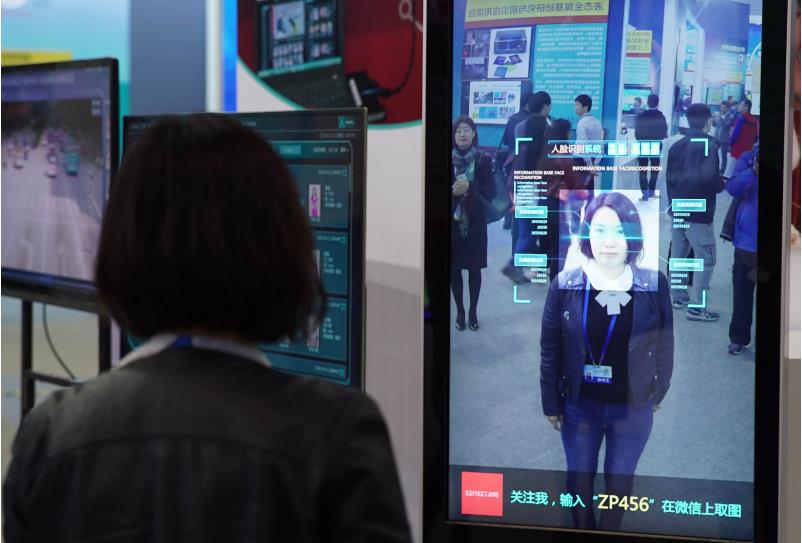Media Report

- Quartz reports: "Most of us use products made in China every day and are aware of its growing economic power as a factory to the world. But China intends to become a developed nation by mid-century, and integral to this ambition is its intense focus on innovation...Chinese companies now pose a challenge to established multinationals as they enter the markets of the developed world to become insiders. Since China's former leader, Deng Xiaoping, implemented market-oriented economic reforms to China in 1979-80, the driving forces of this transformation have been the customer and the culture. Chinese customers have a rapidly growing demand for products as the nation's large, diverse population seeks better lives. This has stimulated many companies to develop affordable products for those needs. And a culture of entrepreneurship in the business sector has been facilitated by a far-sighted government with a strong drive for independence and economic development. The Chinese government has fostered an innovation ecosystem across the country, consisting of some 100 science and technology parks, universities and government research institutions, which provide support for new enterprises. The Chinese government and businesses invested some $190 billion in research and development in 2013, which is around 40% of the annual R&D investment in the United States."
- Bloomberg reports: "China cemented its approval of the world's biggest steel tie-up in a decade by naming top executives of the merging companies to the posts of chairman and president of the new group, pressing on with efforts to restructure mills in the top producer as prices rebound...China is promoting mergers among its largest producers to combat chronic overcapacity, boost its influence over prices and create fewer, more profitable mills. The turnaround may, however, prove short-lived as ballooning raw materials costs -- especially for coal -- and slowing demand threaten profits."
- Reuters reports: "China said on Monday the situation at the disputed Scarborough Shoal in the South China Sea "has not changed and will not change", after the Philippines said Chinese vessels that blocked the area for four years had stopped harassing its fishermen. Philippine security officials on Sunday said China had scaled down its maritime presence at the shoal since President Rodrigo Duterte's return from a visit to Beijing aimed at patching-up ties and courting investment.The disputed territory is significant not only for fishing, but for the broader balance of power in the South China Sea, and the circumstances behind China's apparent softening of its position are not clear."
Calendar
- 2016-10-30 Russia Welcomes Growing Wave of 'Red Tourists' From China
- 2016-10-28 Philippines says Chinese ships have stopped chasing Filipino fishermen from contested shoal
- 2016-10-27 China's Xi anointed 'core' leader, on par with Mao, Deng
- 2016-10-26 Xi’s Agents of Fear Keep Party on Edge in Anti-Graft Fight
- 2016-10-25 Duterte Looks to Reassure Skeptical Japan Over China Ties
- 2016-10-24 China’s Digital Soft Power Play
- 2016-10-23 China's Xi Jinping Seeks Safety in Numbers—Or Else
- 2016-10-21 China’s plan to organize its society relies on ‘big data’ to rate everyone
- 2016-10-20 Rodrigo Duterte and Xi Jinping Agree to Reopen South China Sea Talks
- 2016-10-19 As China’s Economy Slows, a Look at What Could Happen
News
- Bloomberg China Puts Finishing Touches to World's Biggest Steel Tie-Up in a Decade
- Reuters China says 'situation' at disputed Scarborough Shoal has not changed
- Quartz Made in China: Once known for cheap knockoffs, Chinese companies are now the world's innovators
- Bloomberg Big Oil's Shrinking Act Has More to Go in China
- CNN China to show off new J-20 stealth fighter
- Bloomberg China as Factory to World Mulls the Unthinkable: Price Hikes
- NPR 33 Miners Missing, Presumed Trapped After Explosion In Chinese Coal Mine
- Foreign Policy President of Philippines: God Told Me to Stop Calling People Sons of Whores
- The Wall Street Journal Vatican, China Consider Deal on Selection of Bishops After Decades of Division
- Reuters France, China to set up joint investment fund for overseas projects
- Inquirer Fidel Ramos quits as special envoy to China
- The Financial Times China grapples with garlic price bubble
- Reuters China to invest $140 billion by 2020 to relocate poor citizens
- South China Morning Post China's theme park industry to become world's largest by 2020, analysts say
Commentary
- The National Interest America's Latest South China Sea FONOP Did More Harm Than Good
- The Diplomat Can China Finally Solve Its Corruption Problem?
- The New York Times An Exiled Editor Traces the Roots of Democratic Thought in China
- The Diplomat Cape Verde: A Blueprint for China's Positive Role in Africa
- The New York Times Making Online Literature Pay Big in China
- The Diplomat China's Nuclear Power Plans Melting Down
